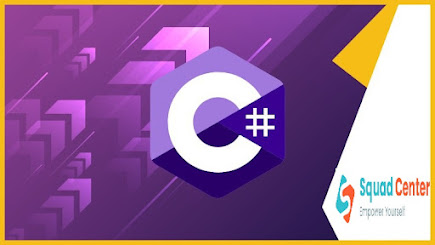Unleashing the Power of C# Functions: Industry Relevance and Professional Pathways
C# (pronounced C sharp) is a versatile and powerful programming language widely used in the software development industry. Known for its simplicity, scalability, and robustness, C# has become a go-to language for building a wide range of applications, from desktop and web applications to mobile apps and game development. In this article, we explore the industry relevance of C# functions and the professional pathways that a training course can open for students.
C# functions, also known as methods, play a crucial role in software development. They encapsulate a set of instructions that perform specific tasks, enabling code reusability, modularity, and maintainability. Here are some areas where C# functions excel:
a) Application Development: C# functions are extensively used in application development across various platforms. Whether it's building desktop applications using Windows Forms or developing web applications with ASP.NET, C# functions provide the building blocks for creating functional and interactive software solutions.
b) Game Development: The Unity game engine, which powers numerous popular games, relies heavily on C# functions for gameplay mechanics, character interactions, AI, and more. Aspiring game developers can leverage their C# skills to create immersive and engaging gaming experiences.
c) Backend Development: C# functions are a popular choice for backend development, especially with the ASP.NET framework. They enable the implementation of business logic, data processing, and database interactions, making them invaluable for building robust and scalable server-side applications.
d) Internet of Things (IoT): C# functions can be employed in IoT applications, allowing developers to control and interact with connected devices. With the .NET Micro Framework, C# functions can run on resource-constrained devices, making them suitable for IoT scenarios.
By gaining proficiency in C# functions, developers can unlock a range of professional pathways and career opportunities. Here are some potential career paths:
a) Software Developer: C# is widely used in software development, and companies actively seek skilled C# developers. As a software developer, you will work on diverse projects, collaborating with cross-functional teams to build robust and efficient software solutions.
b) Web Developer: With knowledge of C# functions and the ASP.NET framework, you can pursue a career as a web developer. You will build dynamic web applications, design database structures, handle server-side logic, and create responsive user interfaces.
c) Game Developer: C# functions are crucial for game development, especially with the Unity game engine. As a game developer, you will create interactive gameplay mechanics, implement AI algorithms, and optimize performance to deliver captivating gaming experiences.
d) Backend Developer: C# functions are instrumental in backend development, enabling you to design and develop server-side applications, APIs, and database systems. Backend developers play a critical role in architecting and maintaining the foundation of software systems.
e) IoT Developer: C# functions can be applied in IoT development, allowing you to work on projects involving connected devices, sensor data processing, and IoT platform integration. As an IoT developer, you will leverage C# functions to build smart and connected solutions.
A structured training course focused on C# functions can provide invaluable benefits to students looking to enter the industry. Here are a few advantages:
a) Comprehensive Learning: A dedicated IT training course will cover fundamental and advanced concepts of C# functions, ensuring a solid understanding of the language and its application in real-world scenarios.
b) Hands-on Experience: Practical exercises and projects offered in the course enable students to apply their knowledge in practical settings, enhancing their problem-solving skills and confidence as C# developers.
c) Industry-Relevant Curriculum: A reputable IT Training Course and Placement will align its curriculum with industry best practices and the latest trends, equipping students with up-to-date knowledge and skills.
d) Networking Opportunities: Training courses often provide opportunities to connect with industry professionals, mentors, and fellow students, fostering a supportive community and potential career connections.
C# functions play a vital role in the software development industry, offering a versatile and powerful toolset for creating a wide range of applications. By acquiring proficiency in C# functions through a training course, aspiring developers can open doors to exciting career paths as software developers, web developers, game developers, backend developers, or IoT developers. The industry demand for skilled C# developers continues to grow, making it an opportune time to embark on a C# functions training journey. Invest in your professional growth and take the first step toward a successful career in software development with a comprehensive C# functions course.




Comments
Post a Comment